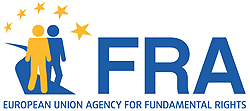The circumstances surrounding the deaths of Grainne Daly and Bernard Wright were reported last week and should be remembered for years to come. Unfortunately I fear that they may soon be forgotten.
Both had disabilities and both had families who fought hard to get clarity regarding their treatment and cause of death.
Grainne’s family had been fighting for 4 years before they finally received an apology from the HSE. Eoin English reported extensively in the Irish Examiner on Saturday on the circumstances surrounding her death and the silence from the HSE afterwards.
Bernard Wright died in 2011 in the care of St. Michaels House, his family had moved him back there from Beaumont Hospital following a refusal to administer morphine. His family thanked St. Michaels House for their care and allowing Bernard to die with dignity.
While the culture of non-disclosure and a refusal to communicate with family members during an illness and following death was the main focus of the reports last week there was another issue which lay below the surface.
There is no national protocol regarding the treatment, communication and support of people with disabilities who are receiving treatment in acute hospital settings. Several hospitals have individual policies, however the HSE or HIQA have no national standards on the needs and treatment of this specific group when they are seriously ill. Frequently health care providers are more concerned by consent and decision making (Capacity legislation dates back to the 19th century) rather than the basics of caring and listening to patients and those who know them and planning care and consultation. Many who are concerned with this issue believe that often the best treatment is not provided to people with disabilities because they can’t speak up or are seen as less important than other patients.
Service providers (funded by the State) who support people with disabilities in residential settings also vary in the type of communication and practical supports offered to the people they care for when they go to an acute hospital. Making sure that information is passed between providers and hospitals does not always happen. Sometimes staff will remain with people with disabilities throughout their hospital stay because of the deficiencies in acute hospital care in ensuring people are heard and cared for appropriately. I have heard that some hospitals demand that this happen due to lack of resources. But often agencies do not have enough staff to ensure someone is at the hospital with the person who has a disability during their inpatient stay.
Family members may not be able to attend either and may not be able to speak up or be heard in questioning the treatment (or lack of it) being offered. Many organisations are developing palliative care services and policies due to deficits in mainstream services.
Talking to people with disabilities about their hospital and healthcare experiences over the past 20 years I have been struck about reports of poor care, a lack of information on conditions being given to patients, being patronised by healthcare staff, the lack of knowledge of staff of many disabilities and too many assumptions being made, low levels of support with eating and hydration whilst in hospital. For those who are able to speak up they often find themselves ignored and information given to carers and families without people’s consent. All report that it is an extremely stressful time and frequently that is due to the issues other than the illness being treated.
We need a national focus and response on the way in which people with disabilities are supported when they are patients in acute hospitals, the care they receive from staff in those hospitals – ensuring people are trained to deliver care and not rely on families or disability organisations to provide care. And we need to talk about supporting people to have the right to both live and die with dignity.
In the UK last year MENCAP published the results of a confidential inquiry into the deaths of people with disabilities. The inquiry showed that over 1200 people with disabilities die in acute hospitals each year because they are not getting the right care.
People with disabilities, their families and those who support them should feel safe when they are in hospital and know that they receive the best standard of care. We all should feel like that.


